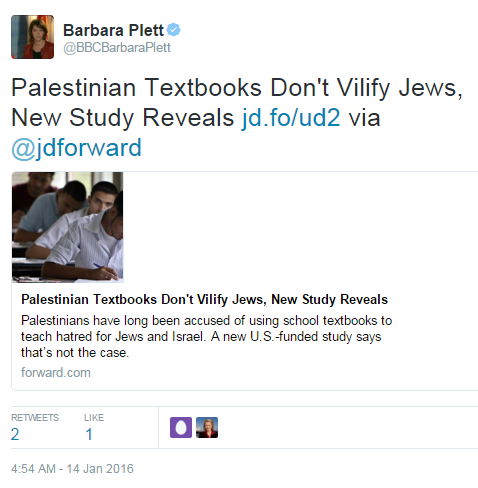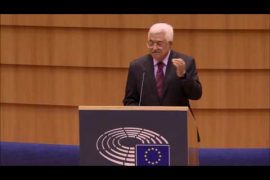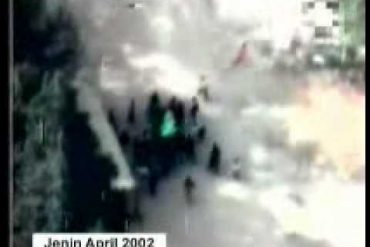For years the BBC’s portrayal of the topic of healthcare in the Gaza Strip has failed to give audiences an accurate and impartial view of the subject.
BBC News passes up the chance to set the record straight on Gaza shortages
The BBC, the Gaza Strip and medical supplies
No BBC follow-up on story used to mislead on Gaza medical services
Moreover, while the BBC knows full well that issues such as shortages of medical supplies and medicines – along with refusals to cover treatment costs and late or non-existent applications for entry permits into Israel for Palestinian patients – are the results of Palestinian Authority policies, it continues to frame such topics as being first and foremost connected to Israeli security measures.
“There is a considerable impact through the blockade on health facilities and that was shown…for example I did a report that ran last night on the ten o’clock news and you could see how medical facilities are suffering.” Mishal Husain, ‘Today’, BBC Radio 4, January 18th 2019
Not infrequently, BBC audiences have been told partially portrayed stories about children and infants to illustrate such reports.
“Because the blockade restricts the movement of people, patients need to request permission to leave. This two-day old baby with a congenital heart defect was waiting for an exit permit when we filmed him. Four days later he died. His permission hadn’t come through.” Mishal Husain, BBC One ‘News at Ten’, January 17th 2019
And it’s becoming more difficult to get Israeli permits to transfer seriously ill patients out of Gaza, partly because the PA is giving fewer guarantees it will cover their medical costs elsewhere. The doctor tells me how, days ago, he broke this news to the parents of a newborn with a congenital heart condition who went on to die. ‘How did I do this?’ he asks me. ‘I’m speaking to you not as a doctor but as a human being’.” [emphasis added] Yolande Knell, BBC Radio 4, July 22nd 2017 [emphasis added]
The latest BBC report in that genre was aired on BBC Radio 4’s ‘Today’ programme on May 31st. Presenter Mishal Husain introduced the long item (from 01:45:37 here). [emphasis in italics in the original, emphasis in bold added]
Husain: “Being diagnosed with a serious medical condition such as cancer in Gaza, where many medical treatments are not available, means a series of complex problems beyond your diagnosis. With a financial crisis and a deep rift between Hamas – which rules Gaza – and Fatah – which dominates the Palestinian Authority in the West Bank – many drugs are in short supply.”
If listeners thought that they were about to hear more about that “deep rift” and how it and PA policy translates into a long-standing crisis in the health system in the Gaza Strip and reduced referrals for treatment elsewhere, they were mistaken.
Husain: “Treatments and travel are also restricted by the tight blockade imposed by Israel and Egypt. Often, a patient’s best hope is to get to one of the Palestinian hospitals in East Jerusalem. The final stage of that process is a permit from the Israeli authorities. Our Middle East correspondent Yolande Knell reports.”
Knell: “There’s a crowd of cancer patients at the Augusta Victoria reception from early morning. Many come from Gaza and have had long hold-ups for potentially life-saving treatment.”
Woman [voiceover]: “My treatment is going to take longer as my tumour grew because of the delay. The longer you wait, the scarier it gets with this disease.”
Knell: “And yet these patients say they’re lucky as they’ve reached East Jerusalem. Those aged 16 to 55 have gone through more thorough Israeli security checks. Now, they’re in the only Palestinian hospital where Israel allows radiation treatment and it has the drugs they need.”
According to a study published in October 2018:
“In 2013, the first radiation oncology service in the Palestinian territories opened in the August-Victoria Hospital. There are now three linear accelerators in the Palestinian territories…” [emphasis added]
The report continued:
Woman [voiceover]: “In Gaza it’s difficult. All they do is check you. You live, you die, that’s it. The travelling is exhausting but this is the only place to get treatment. Getting permits is hard unless you’re in your 50s or 60s. Many younger people just have to stay in Gaza.”
Knell: Increasingly, hospitals in Gaza lack essential medicines including for cancer. The territory’s run by Hamas but a rival administration – the Palestinian Authority – is responsible for sending medical supplies. The PA also authorises patients getting treated outside. Then, the Israeli authorities decide who gets an exit permit. The bureaucracy for Gazans exasperates oncologist Dr Yussuf Hamamra [phonetic].”
Hamamra: “They have to go through a very complicated process. That’s mean two thirds of them they are coming to us in very advanced stage unfortunately. They need to have permission to come from the Israeli side and also financial coverage from the Palestinian minister [ministry] of health and you know sometimes here the politics of course will affect strongly the situation and [unintelligible] the patients they need to come to my clinic within 2 weeks, they need at least 2 months.”
Knell: “Upstairs, in the children’s ward, 13-year-old Mahmoud sings for his nurses while he’s hooked up to a drip for his chemotherapy. The lyrics about homesickness are poignant but for the first time in a year, Mahmoud does have his mum with him instead of an elderly grandparent. She’s now got security clearance from Israel.”
With no identifying details given, it is of course impossible to check out Knell’s story and understand why the mother allegedly did not initially receive a permit. Knell made no effort to fill in those obviously relevant details for listeners before going on to tell of more than one baby “on their own” but actually providing details of just one case.
Knell: “And here, in the neo-natal ward at the Makassed hospital, there are some tiny patients on their own. After the militant group Hamas took over Gaza more than a decade ago, Israel tightened its restrictions on people’s movements, citing security concerns. The Israeli authorities say it’s their policy for sick children to be accompanied by a parent but that doesn’t always happen. Baby Shahd was born prematurely in January, the only survivor of triplets. She’s now healthy, smiling at me in her cot. For over two months she’s been waiting to be taken home. Her mother was sent back to Gaza shortly after giving birth. This cash-strapped hospital had no place for her to stay.” […]
When I watch, it’s a nurse feeding Shahd but later I’m told of a happy reunion. Her mother was finally able to come and collect her this week. The staff are delighted. Here, at the East Jerusalem hospitals, they care for some of the most vulnerable Palestinian patients – tough financial and political realities only adding to the serious conditions they’re in.”
The background to that story promoted by Knell – which had been reported on May 29th by an Israeli media outlet and which again came up moments later in the same item – is actually as follows:
“In January, the Gazan woman, pregnant with triplets, arrived at the Makassed Hospital for urgent surgery. She went into labor and gave birth but two of the siblings, both boys, died days later.
The mother returned to Gaza to bury her two sons while Shahd, the girl, stayed behind in Jerusalem, where she was taken care of by hospital staff.
The hospital repeatedly asked the Palestinian Authority to request a permit from the Defense Ministry’s Coordinator of Government Activities in the Territories for Shahd’s mother or father to come back to Israel, but the efforts failed. […]
COGAT said in a statement that it received just one previous request for a permit, but it was faulty and therefore not approved.”
Mishal Husain then (from 01:50:54) introduced the next part of the item.
Husain: “Well Dr Rosena Allin-Khan is a Labour MP and has recently returned from Jerusalem and the West Bank where she was visiting hospitals and doing medical work. […] And one of the cases you saw was that of this little baby.”
Allin-Khan did indeed visit the region between April 4th and 8th this year on a trip paid for by the political NGO ‘Medical Aid for Palestinians’ (MAP) as she went on to state. However, listeners heard nothing from her or from Mishal Husain about that NGO’s political agenda and its history of anti-Israel campaigning.
Allin-Khan then proceeded – unchallenged by Husain – to give a false account of the story.
Allin-Khan: “Yes, I met baby Shahd when I went to East Jerusalem with Medical Aid for Palestinians to help them and support their work that they do there. I met baby Shahd who sadly was the only baby surviving of three triplets born to a mother that wasn’t able to stay in the hospital and the sad case was that the staff in the hospital had to tell the mother over the phone that her other two babies had died. Being a clinician myself I cannot imagine what that must be like. But being a mother, I cannot imagine the incomprehensible pain to hear that you cannot be with your children as they take their dying breath.”
Rather than correcting the inaccurate version of the story told by her interviewee, Husain embellished it.
Husain: “Because she had gone back to…eh…Gaza or her permit didn’t allow her to remain and the three new-born babies were in this…were in this neo-natal unit.”
Allin-Khan: “Yes.”
Husain: “What about the children who are having cancer treatment? There was one of them reflected in that report who had his mother with him on that day but there are other times when they’re receiving chemotherapy without their parents being allowed to have come to Jerusalem with them.”
Allin-Khan then came up with a completely unsupported claim that likewise went unquestioned.
Allin-Khan: “It’s very rare for them to have their parents with them. I went to the paediatric oncology ward that was featured in the piece and it’s full of children whose eyes are full of fear and sadness. Some as young as 2 or 3 facing chemotherapy alone without their mother. And we wouldn’t find it acceptable in the UK for children to endure the most unspeakable pain such as going through cancer chemotherapy without their mother there and some of them were so distressed that they couldn’t even communicate with their parents over the phone.”
Husain: “I mean there’s a complicated security situation – we’ll be talking to the Israeli deputy ambassador about that in a moment – but what could be done do you think to improve this? At least for the children.”
Allin-Khan: “Fundamentally this is a humanitarian crisis born out of political choice. The cases described today are not uncommon and frankly inhumane. Permit delays are in fact permit denials which in many cases cost lives and I’m going to be calling on the UK government to apply pressure on the Israeli government because I would hope that everyone, regardless of their politics, has enough humanity to accept that no child should die alone or endure painful treatment on their own.”
So what did Radio 4 listeners actually get here? Yolande Knell picked up a story which had appeared two days earlier in the Israeli media and made an item out of it which dovetails nicely with the BBC’s existing framing of the topic of Israeli counter-terrorism measures. The ‘Today’ programme then brought in a British MP with a vague connection to the same story to promote commentary that serves the long-standing political campaign by MAP and other anti-Israel NGOs concerning the ‘blockade’.
Listeners did not hear the word ‘terror’ once throughout those seven minutes but they did hear a false version of the core story which enabled promotion of the notion that children “die alone” and undergo “painful treatment on their own” (even when a grandparent or another family member is present) because of Israeli policy – which was clearly signposted to listeners as being “inhumane”.
The rest of this item will be discussed in part two of this post.




